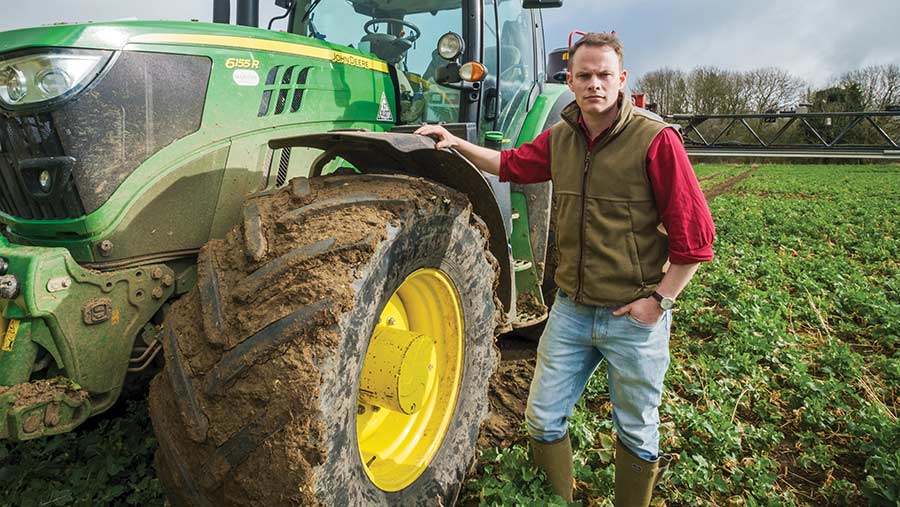Farmer Focus: Regenerative agriculture – a term loathed by many
 © Jason Bye
© Jason Bye The year is racing by and shows no sign of slowing down. Blink and we will be harvesting.
I try to make a point each year of getting off the reservation and visiting some farms around the country. It temporarily gets the stress monkey off my back and recharges me for the year ahead.
This year, I’ve managed to fit in farm visits to Derbyshire and Lincolnshire, as well as Oxfordshire for a two-day shearing course with a pair of brothers who taught me a thing or two about sheep.
See also: Why blackgrass is so bad in 2023 and what to do about it
My grand tour culminated at Colleymore Farm with Andy Cato and his team from Wildfarmed.
Wildfarmed is promoting the holy grail of no-till, zero-pesticide farming with integrated livestock and bi-cropping.
From what I could see on Andy’s own farm, he is making it work. As commodity prices fall and weather risks increase, his example gross margin is enticing too.
Regenerative agriculture, a term loathed by so many, can of course mean anything to anyone. For many like me, it is a progressive journey.
I came away from my visit thinking the Wildfarmed standards have now set the bar.
We shall dip our regenerative toes into the Wildfarmed oasis next season, and with help from Andy and his team, I hope to start kicking my pesticide addiction.
Our wheat T3s were completed by 14 June, despite the severe heat limiting us to nocturnal applications.
Crops are looking exceptionally well, apart from those on the shallower soils where they are beginning to burn off.
Two holdings I farm are insecticide-free, and barley yellow dwarf virus (BYDV) is showing on the headlands.
Oddly, it appears less of a problem further in field. I would have assumed the opposite is true. Answers on a postcard please!
Next year, we will try BYDV-tolerant variety Grouse for our earliest drilled wheat.
T3 spraying allowed us to identify the odd patch of grassweed that survived our rigorous herbicide programme. A fortnight of gang labour has since cleaned up all of our customers’ farms.
This adds approximately £30/ha to the total “spray” spend, but in my view is worth it to remain in complete control of grassweeds.
June has consisted of a lot of administration, preparing plans for the season ahead, multiple Red Tractor audits and an RPA inspection to boot.

